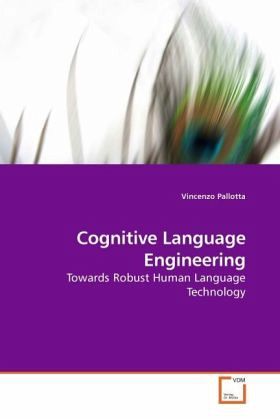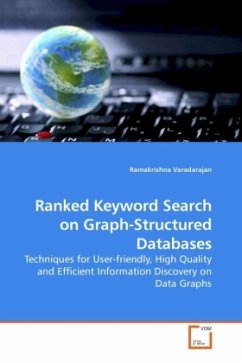
Cognitive Language Engineering
Towards Robust Human Language Technology
Versandkostenfrei!
Versandfertig in 6-10 Tagen
52,99 €
inkl. MwSt.

PAYBACK Punkte
26 °P sammeln!
Human Language Technology is essential in coping with today's information overload. To scale up, it must be robust and capable of making sense of noisy data. This book explores the topic of cognitive language engineering as a key for robustness. It can be used by students and practitioners alike, as a computational linguistics textbook and as a toolbox for building robust natural language understanding systems. About this book: "Pallotta's insight and critical discussion of the underlying mental models are core issues of present-day cognitive language engineering" [Prof. Hon. Giovanni Coray, S...
Human Language Technology is essential in coping with today's information overload. To scale up, it must be robust and capable of making sense of noisy data. This book explores the topic of cognitive language engineering as a key for robustness. It can be used by students and practitioners alike, as a computational linguistics textbook and as a toolbox for building robust natural language understanding systems. About this book: "Pallotta's insight and critical discussion of the underlying mental models are core issues of present-day cognitive language engineering" [Prof. Hon. Giovanni Coray, Swiss Federal Institute of Technology Lausanne, Switzerland]. From a computational linguistics perspective Pallotta's book provides students and researchers with a powerful toolbox and many examples of real-world applications. [Prof. Rodolfo Delmonte, University of Venice]. "Pallotta s work on cognitive language engineering is a stimulating and well written treatise on models for computer applications that can interact using natural language. Practical and robust natural language systems begin to become a reality with this fascinating work." [Dr. Afzal Ballim, Computational Linguist].












